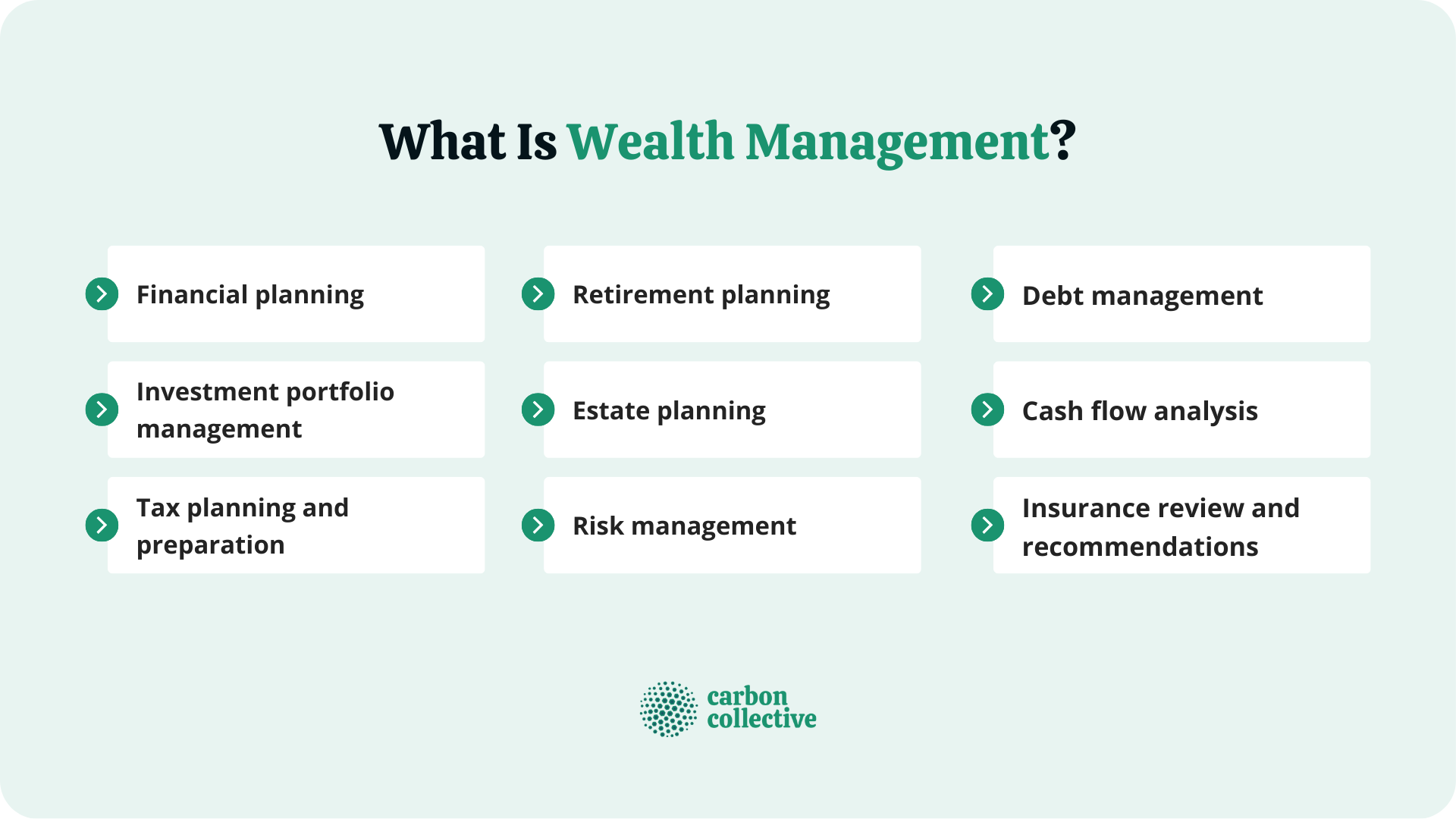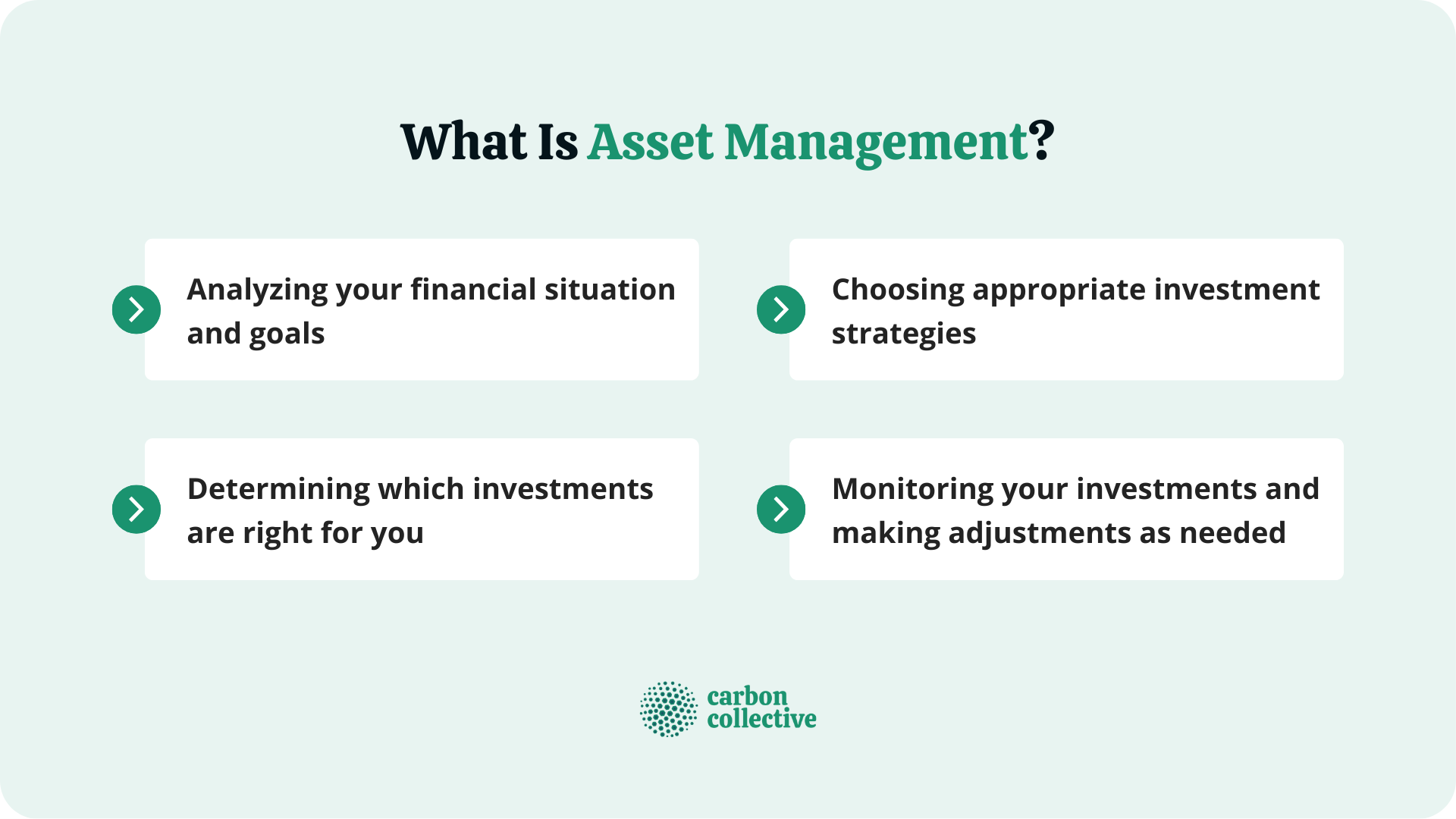When it comes to your finances, it is important to know the difference between asset management and wealth management.
Asset management is the process of managing your financial assets, while wealth management, on the other hand, is a broader term that includes asset management, but also encompasses other services, such as estate planning and tax advice.
What Is Asset Management?
Asset management is the process of managing a variety of assets, such as stocks, bonds, and mutual funds.
Asset management involves several different tasks:
What Is Wealth Management?
Wealth management includes asset management but also encompasses other services.
Here are some of the most common services falling under wealth management:

Wealth management is a comprehensive approach to managing your finances. It takes into account all aspects of your financial life, from saving for retirement to estate planning. And it is tailored to meet your specific needs and goals.
What Is the Difference Between Asset Management and Wealth Management?
These are the differences between asset management and wealth management:
- Asset managers typically work for financial institutions, such as banks or investment firms, while wealth managers are usually independent professionals who work directly with clients.
- Asset managers typically have more experience in investing, while wealth managers may have more expertise in other areas, such as taxes and estate planning.
- Asset management focuses solely on your investments, while wealth management includes a broader range of services.
- Asset management is a more technical process, while wealth management is more holistic.
How to Find Wealth Management and Asset Management
If you are looking for a wealth manager, there are a few ways to find one.
- You can ask for referrals from friends, family, or financial professionals.
- You can also search online directories, such as the Financial Planning Association or the National Association of Personal Financial Advisors.
When it comes to asset management, there are a few different options.
- Many investment firms offer asset management services.
- Some banks offer asset management accounts, which are investment accounts that are managed by the bank.
Which One Is Right for Me?
There are a few factors to consider to figure out which one is right for you:
- Your financial situation and goals
- The type of investments you want
- The level of service you need
- How much you are comfortable with paying
Asset management is a good option if you are mostly interested in investing and you have a moderate amount of assets. Wealth management is a good option if you want comprehensive financial planning and have a significant amount of assets.
If you are primarily concerned with managing your investments, asset management may be a good option for you. But if you want a comprehensive approach to managing your finances, wealth management may be a better choice.
Of course, there is no one-size-fits-all answer. The best way to find out which approach is right for you is to talk to a financial advisor. They can help you assess your situation and goals and recommend the best course of action.
The Bottom Line
Asset management and wealth management are two different approaches to financial planning. Asset management focuses on investing, while wealth management includes a broader range of services.
The right approach for you depends on your financial situation, goals, and needs. If you are not sure which one is right for you, talk to a financial advisor.
FAQs
1. Can I hire both an asset manager and a wealth manager?
Yes, you can hire both an asset manager and a wealth manager. However, it is important to make sure that they are working together in coordination. Otherwise, you may end up with conflicting advice.
2. What certifications should I look for when choosing a wealth manager?
There is no one-size-fits-all answer to this question, as certifications can vary depending on the wealth manager’s specialty. However, some common certifications include Certified Financial Planner™ (CFP™), Chartered Financial Analyst® (CFA®), Accredited Investment Fiduciary® (AIF®), and CLU (Certified Life Underwriter).
3. What certifications should I look for when choosing an asset manager?
When choosing an asset manager, you should look for the Chartered Financial Analyst® (CFA®) designation. This certification is granted by the CFA Institute, signifying that the asset manager has passed a series of exams and has at least three years of experience in the field.
4. Which one is more expensive, asset management or wealth management?
Asset management and wealth management can both be expensive. However, asset management is typically less expensive than wealth management. This is because asset managers typically have fewer clients and charge lower fees. Wealth managers, on the other hand, often have more clients and charge higher fees.
5. Where can I check to see if a wealth manager or asset manager is registered?
You can check with the Securities and Exchange Commission (SEC) to see if a wealth manager or asset manager is registered. The SEC maintains a database of all investment professionals who are registered with them.

